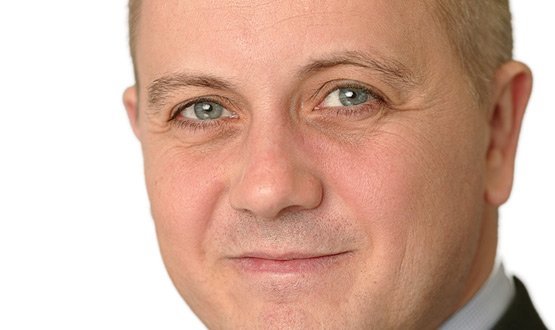Punish EPR laggers – Kelsey
- 24 September 2014

Healthcare leaders must consider implementing “radical” proposals to improve the use of electronic patient records, such as stripping training accreditation from providers who fail to implement them, Tim Kelsey has said.
Speaking at the Healthcare Efficiency Through Technology expo in London, NHS England’s director of patients and information said providers who do not make the most of EPRs must be held to account.
“There must be no tolerance for hospitals that are not taking seriously their obligation to safely and digitally record what is happening to their patients, because that means we cannot measure outcomes,” he said.
Kelsey added that he would like the National Information Board’s information strategy, which is set to be released this year, to be “radical” in dealing with providers that do not make enough effort to implement EPRs.
He specifically cited the recently released report of the Sowerby Commission set up by Imperial College London to assess the benefits and risks of EPRs, which recommended removing the training accreditation from trusts that “don’t take seriously” their obligations.
He also criticised the healthcare system for failing “to make the case for technology on a pound by pound basis”.
He said the informatics strategy will look at the return on investment that technology can provide across the health system; arguing that it could make a significant impact on the gap between NHS funding, demand and costs that could reach £30 billion by 2020.
“If we can get an £8 billion saving – at the low end [of analysis conducted for NHS England] – that’s a very significant contribution to the sustainability of the health system,” he said.
Earlier at the same event, Kingsley Manning, the chair of the Health and Social Care Information Centre, alluded to the current debate between the political parties about how to fund the health and social care system – and Labour’s commitment yesterday to find more money for health from a ‘mansion tax’.
He said the outcome of the debate did not alter the need to make better use of technology. “We may or may not have different amounts of money offered to resolve financial problems,” he said.
“But what is clear is that unless we make better use of technology and data in the sector we will have little chance of responding the requirements that a growing population and aging population will place on the system.”
Kelsey also argued that the healthcare sector is failing to move along with the public as its users become more adept with technology.
“We’re becoming digital natives, but the healthcare system does not offer us the opportunities to engage through these channels,” he said.
He told the audience that the NIB would expand the goal of giving patients access to some of the data in their GP records by March 2015 to “pretty much all of the data” by next year. And he said plans are being drawn up to let patients write into their own records over the next few years.
Kelsey also tackled the controversial care.data programme at the event. The programme will expand the Hospital Episode Statistics, link them to other datasets including GP data, and make the information available to researchers and others.
However, it is currently stalled because of rows over who will have access to its outputs and the basis on which patients can opt-out. Despite this, Kelsey said the programme was the “first leg of a really important journey” towards better health and care systems.
He also said that four clinical commissioning groups had been chosen as “pathfinders” for the service and communications about it, and that they would be named “shortly.”
Manning stressed that there was a need for the health service to “sustain and renegotiate” its contract with citizens about the use of their data, as this and similar projects moved forward.
“The whole of the sector is dependent on the relationship we have with patients, with carers, and we need to demonstrate that they can have confidence in trusting us with their data,” he said.
Tim Kelsey will be one of the keynote speakers at EHI Live 2014 at the NEC in Birmingham from 4-5 November. Other keynotes include Andy Williams, the chief executive of the Health and Social Care Information Centre, and Dr Ranj, the popular children’s TV presenter and social media fan. Full details of the speaker programme, co-located conferences, show feature areas and exhibition are available on the EHI Live 2014 website; where registration is free to all and open now.





